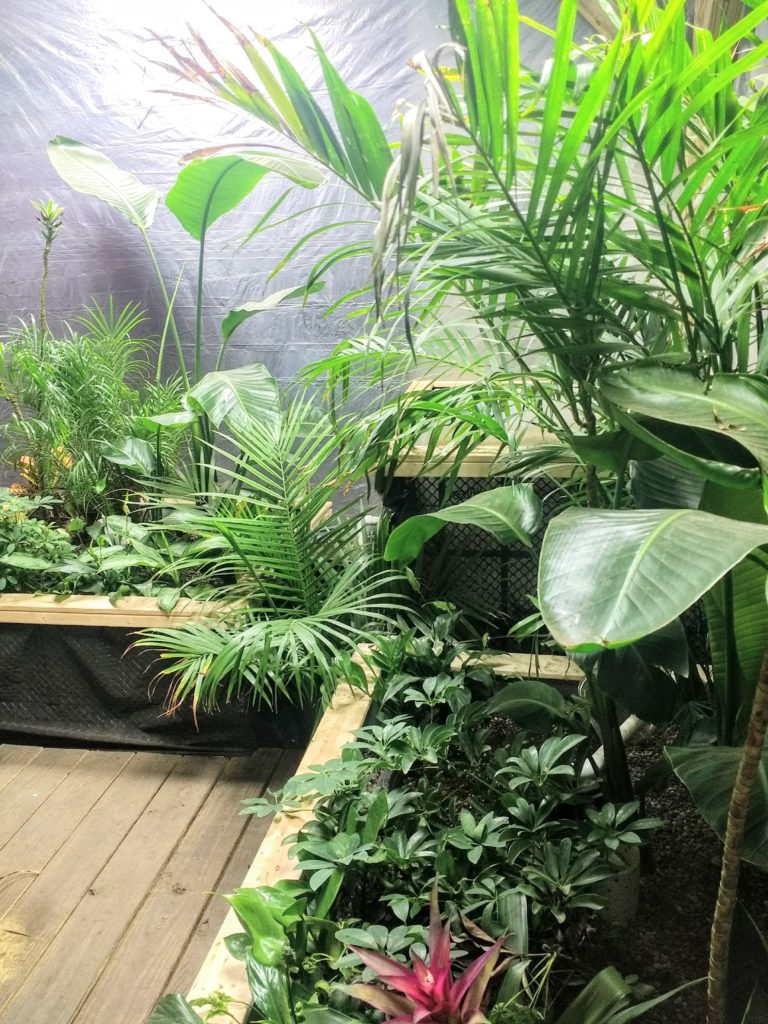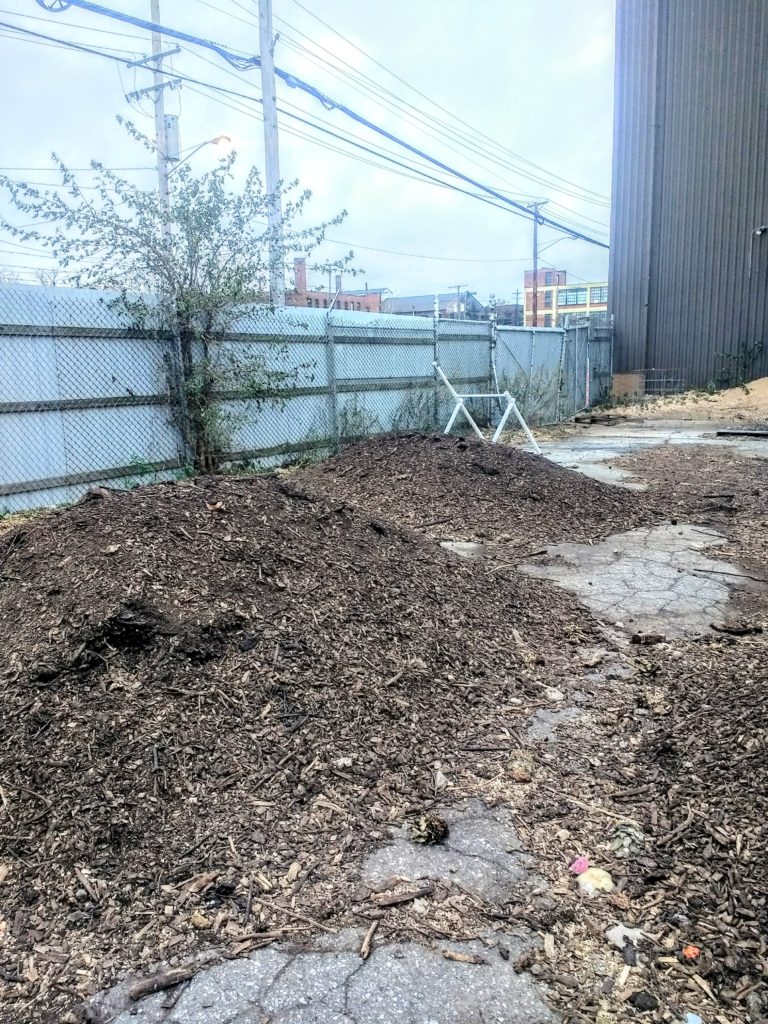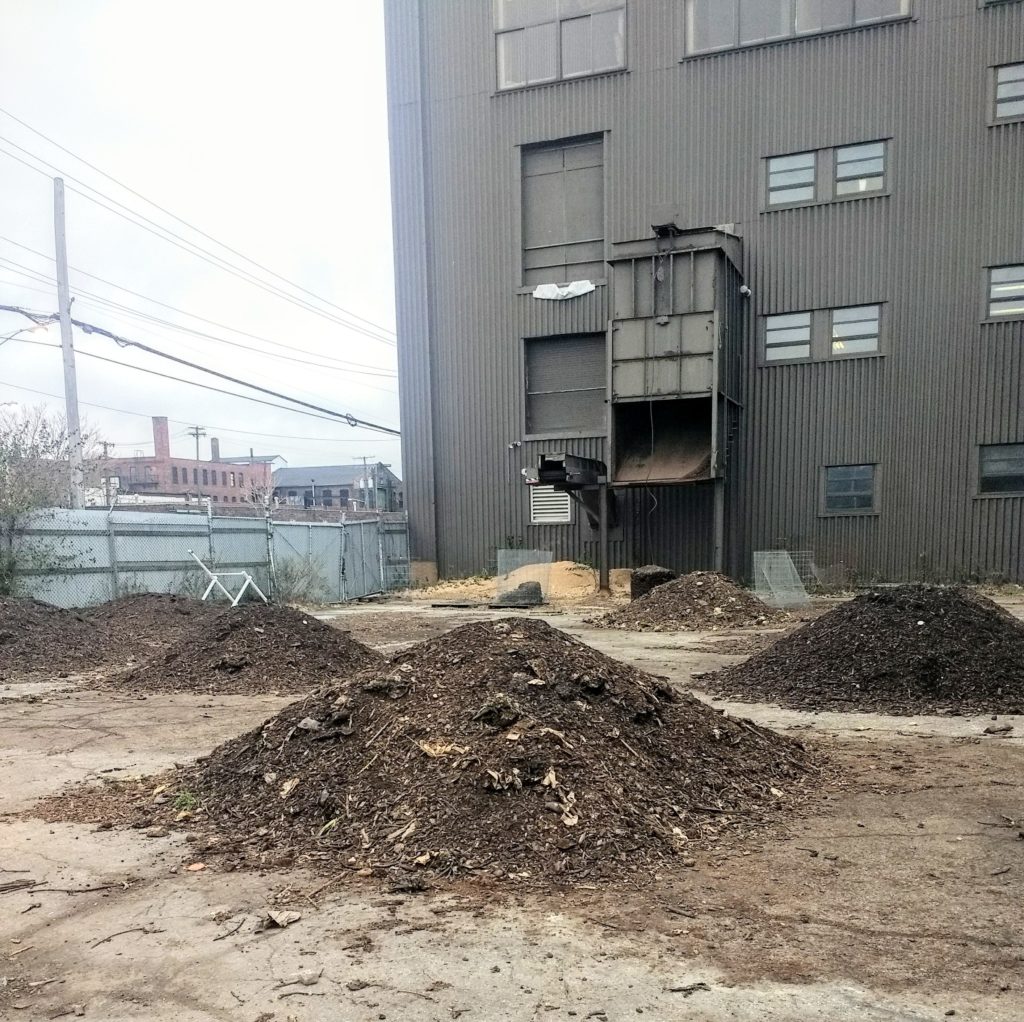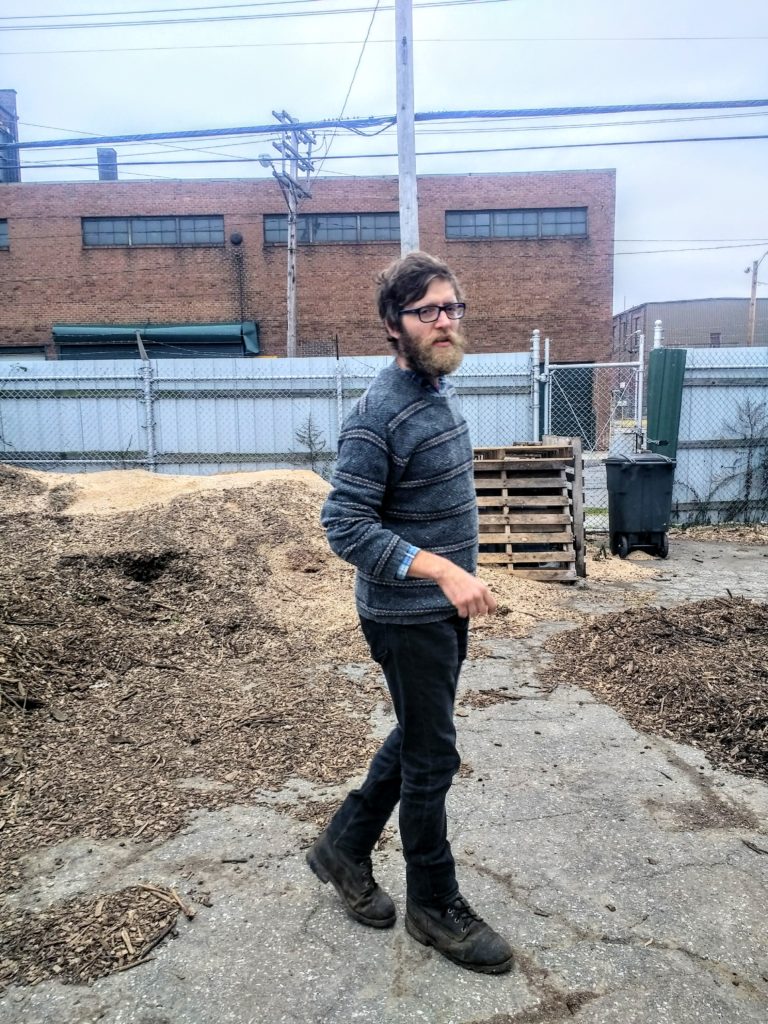by Elsa Johnson and Tom Gibson
Here at Gardenopolis Cleveland we are huge advocates for soil — you may remember that one of our early book reviews was on Kristen Ohlson’s The Soil Will Save Us – and as true believers, we’re all working on making our own soils more productive without the use of chemical fertilizers or tilling. And we know we are not alone in our belief in the importance of healthy soil.
Recently two of us dropped in on Rust Belt Riders, a small composting business located in a warehouse just east of downtown. Cleveland’s Ingenuity Festival shares warehouse space here, storing many colorful props that we had to wind our way around, which made for a strong contrast with Rust Belt Riders, who are basically three guys (all philosophy majors) doing experiments indoors (a tilapia raising tank and filtration tanks to clean the water) while cooking several large piles of compost outdoors.
As gardeners, most of the compost available to us commercially is based on the decomposition of leaves and yard waste, through the process we call composting. It is a large scale production undertaken by our local cities. Most people still, we suspect, send a lot of their ordinary food waste down the food disposal or into the trash, where it ends up — encased in lasts-for-millennia black plastic — in the dump. A smaller number of us home ‘compost’ (raise your hands, please).
But most of us ‘compost’ rather loosely (I know I do). We throw organic plant material from our yards and our plates onto a pile stashed somewhere we can’t actually see it (we call this the backyard feeding station), throw a few leaves or grass clippings on top, and expect that in time it will decay into something we can use on our gardens. And hey, in time, it will. But the Rust Belt Riders approach is way more scientific and controlled. They have studied the soil food web ecosystem, that sustainable system by which microscopic organisms in the soil exist in beneficial symbiosis with plants; that system that perpetually renews soil and plant health—-in contrast to the life-eradicating damage done by tillage or chemical fertilizers.
Their stated mission is to Feed People. Not Landfills. Their goal is to restore the soil food web, not destroy it. Don’t you want to get in on that good work? — Putting the carbon back in the soil.
What is their process…? Rust Belt Riders collect organic food waste from grocery stores, restaurants, and businesses (50 in all) mix it with other organic ingredients in measured amounts, and ‘cook’ it to specific temperatures for specific periods of time. The key is those other organic ingredients—mainly old wood chips that only fungi are equipped to decompose and that comprise close to 60% of the total compost pile. The end result is compost that is alive with the fungi,bacteria, and other micro- and macrofauna like nematodes that, in combination, take plant health to a higher level. (Biologically active soil also requires less watering!)
In addition to selling the compost, Rust Belt Riders also offers soil consultations, zero waste events, and workshops. But perhaps the most useful way to make use of Rust Belt Riders would be their collection service. Currently they collect from various sources like restaurants and grocery stores. But it seems to Gardenopolis Cleveland that an opportunity exists for communities of various scales (from a street, for example, to an incorporated entity like a city) to get in on the collection end by having a central collection area where ordinary individuals could bring their household organic waste (no meat), and a regular collection date. That would take things to a whole different level.
Interested in the soil food web? Go to: Soilfoodweb.com
Interested in Rust Belt Riders? Go to: www.rustbeltriders.com



